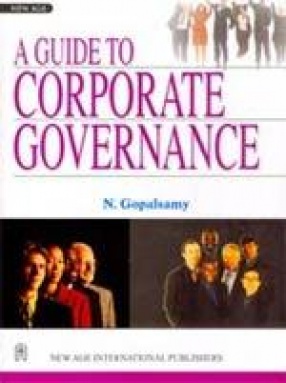Drucker analysed management into fundamental yet practical topics such as what is management, what is a business, how it is organized and managed etc., to recall some of his gems, “Management means the substitution of thought for brawn, knowledge for blind faith and cooperation for force,†“Management is the catalyst which makes possible economic and social development in freedom and dignity. Its legitimacy rests on a code of responsibility and accountability.†When we want to know the tasks of management, these are: Fulfilling the institution’s specific purpose, making work productive and the worker achieving and managing social impact and social responsibilities. In such a context, we may be keen to know what is meant by the term “Managing corporate affairsâ€, which is the title of the book. In practice this could be explained as the process aimed at accomplishing organizational objectives by (!) effectively coordinating the procurement, allocation and utilization of the human, financial, intellectual, and physical resources of the organization and (2) maintaining the organization in a state of satisfactory, dynamic equilibrium within the environment, that is, the corporate strategies and operational plans are responsive to the demands and constraints embedded in the economic, political, legal, cultural, political and competitive environment. “Managing corporate affairs: A Directors’ handbook†therefore, keeping the knowledge and skill requirements of directors in general, covers all the key areas of corporate management, namely different topics related to general management, finance, production, marketing, human resources, business knowledge and knowledge management, company law and corporate governance in addition to industrial/business policy. The Board being the principal organ of the company, the management of the affairs of the company is vested in the Board. However, the powers are to be exercised in compliance with the provisions of Company law and Corporate Governance. The term “Corporate governance†according to the Cadbury committee means it is the system by which companies are directed and controlledâ€. The being the position, how do we comply with the legal and regulatory provisions? What exactly is the desirable role of non-executive/independent directors? How is corporate governance regulated in India? Why are independent directors important for good governance? The answers to these questions and also to other possible questions which one may reasonably pose in respect of other disciplines of management, the readers would find answers in the book. A look at the preface and the contents section would reveal that the publication is not only fit for serving the multifarious needs of Company directors bu it is also very useful for other sections as well, namely for course like MBA, M.Com., MFA, MFC, PGDBA, PGDBM, PGDFM, CFA etc.
Managing Corporate Affairs: A Directors’ Handbook
In stock
Free & Quick Delivery Worldwide
reviews
Bibliographic information
Title
Managing Corporate Affairs: A Directors’ Handbook
Author
Edition
1st ed.
Publisher
ISBN
9788179102732
Subjects






There are no reviews yet.